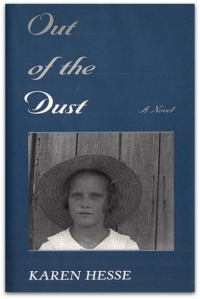I expected to like this book, I was surprised by how much I liked this book.
Grayson is a 6th grader who lives in downtown Chicago, and Grayson has a secret: inside, she* believes she is a girl, but she was born a boy. She wears baggy pants she can imagine into skirts, and long shirts he can pretend are dresses. She doodles disguised princesses in the margins of her notes.
It’s a simple but brave premise. LGBT issues are rare enough in young adult lit, they’re almost nonexistent in middle grade. This is mostly understandable: most LGBT books focus on the L, G, or B aspect, and physical attraction to another person is a key element to those stories. Middle grade readers aren’t as keen on reading about kissing as their YA counterparts. But being transgender does not depend on attraction to others, and we’re starting to understand how early kids assert themselves as transgender. (See: this video that went viral recently of a family explaining their decision to allow their son, who was born girl, live the life he chose as a boy.)
And so at a time when the world is crying for more diverse books and LGBT rights, comes a beautifully written book with a complicated, tender, and thoughtful transgender main character.
Grayson’s world is populated by complicated and sympathetic characters who display a vast, believable range of reactions to Grayson as he reveals more and more of who she* really is. There are the confused, the uncomfortable, the fully-supportive, the ignorant, the tentatively-supportive, and a lot of other more more multi-faceted reactions. We watch all of these reactions through Grayson’s eyes and, like her, we have no idea how each person she reveals a small part of herself to will react. Every time a little more of her real self shows, the reader feels that little tightness in the chest about how this will go. Some characters surprise you with their kindness and some disappoint you with their bile. The way Polonsky builds empathy for Grayson through these moments is masterful, and what I think makes this book so important.
We need diverse books so we can empathize with people who are different from we are, and so people who have not previously seen themselves in books can see themselves and know they are not alone. Gracefully Grayson does both of those things, well, gracefully.
I can’t wait for a bunch of people to read this book! I only teach 3rd grade, but I will be buying a copy for my class library, where I hope it will teach a few (more advanced) readers some empathy or provide some comfort and inspiration.
*I went back and forth about whether to write this review with a male or female pronoun attached to Grayson. At first I had a female pronoun, but it seemed confusing, so I switched it back to the male pronoun. Then a person on Goodreads called me out on a excerpt from the review for using the male pronoun, and it seemed like he really had a point, so I switched it back. For the sake of clarity (sort of) for you, reader: throughout most of the book Grayson is perceived as a boy and anyone interacting with her would have used “him” or “he” when referring to her, but it seemed like the right thing to do to use “she” here.








